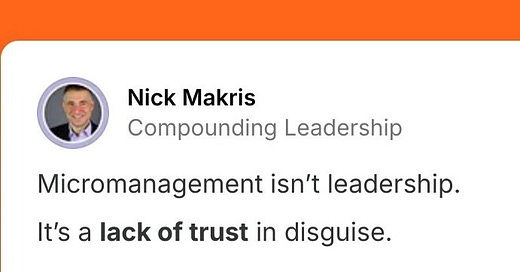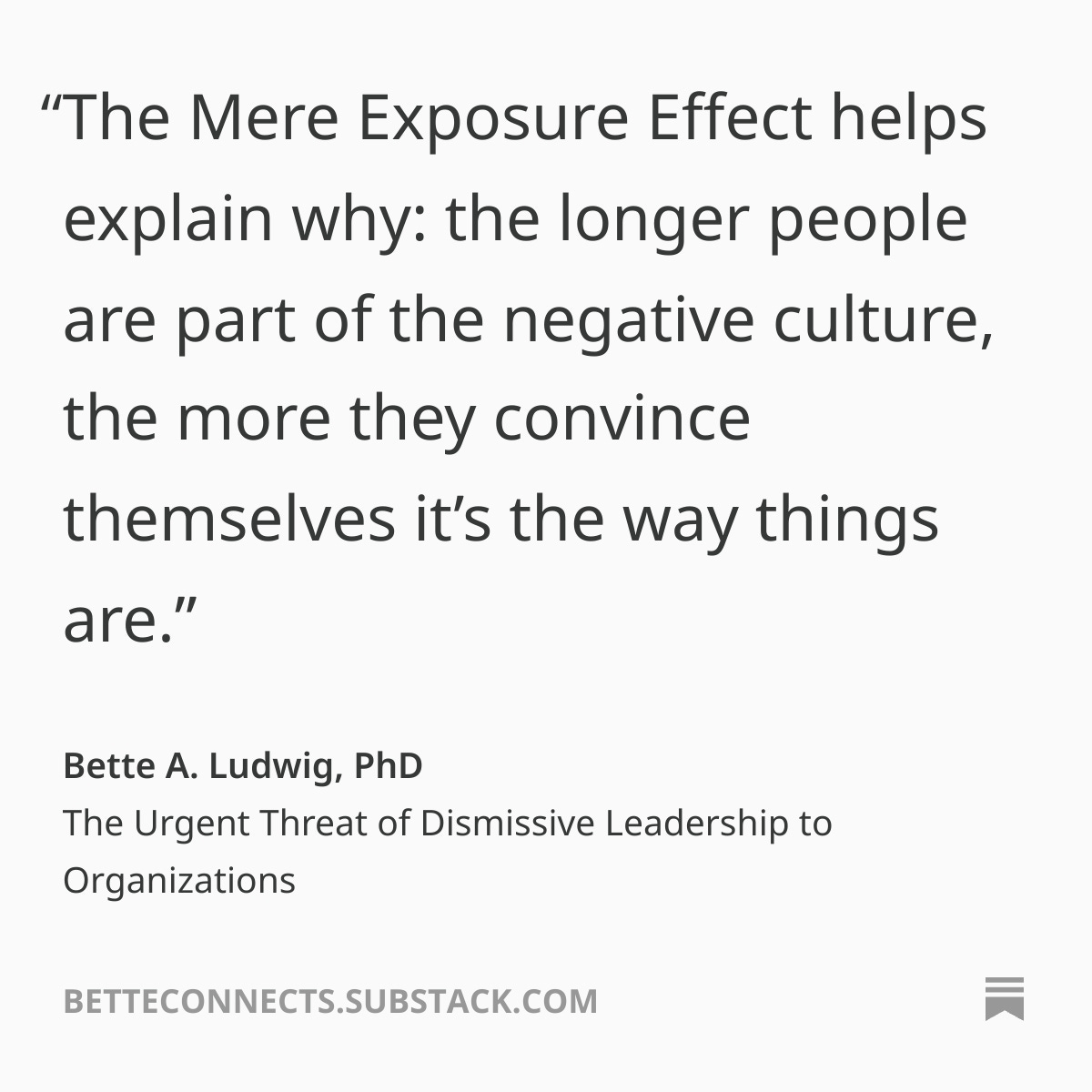Micromanagement and Dismissiveness in Leadership
Learned this week from Substack writers and sources in Communication Intelligence
Welcome to a new feature at Communication Intelligence: this is Weekly Finds, from articles and Notes on Substack.
Micromanagement, I argue, can be from people who don’t know better.
Yet, as Nick Makris, writing at Compounding Leadership says, it’s a lack of trust.
That can come from leaders negative experiences and trauma, years of habits, disappointment towards an employee or team, ignorance or a need to control a situation or people, out of anxiety or, yes, being heavily into control as their own operating procedure.
Maybe it’s better and more helpful to respectfully show someone how to do the work, while also leaving them some room for their own “agency” in decisions.
We’ve heard of comfort zones. Maybe this is a discomfort zone where people feel powerless to change it or they aren’t bothered enough to a breaking point to want to assertively inspire corrections.
More Brains from Bette A. Ludwig, Ph.D, writing at Involved Leadership:
“In dismissive environments, ideas aren’t even heard. Employees stop bringing them up. It’s easier to keep quiet and blend in. No one wants to waste time on something that won’t go anywhere.”
“No one calls out the bullies. No one talks about the toxic attitudes. No one wants to cause a fuss. So, this behavior continues. It festers. The more you ignore it, the worse it gets.”
“Leaders here don’t take responsibility. Conflicts don’t get resolved. HR makes it clear they are not your friend and do all they can to deflect complaints or downplay them hoping you will quit calling.”
“Dismissive leadership might not make headlines like toxic leadership does, but it’s just as damaging. It quietly undermines innovation, morale, and accountability.”
This Week from Sources in Communication Intelligence
Burning Bridges:
“Accountability is huge for people who choose to just walk away because if the other individual does not take responsibility, it can feel like a lost cause,” says Kwan Patton, a licensed mental health therapist
“Rebuilding the broken ties in the future is nearly impossible and can become regretful for the person raising their temper in the moment of crisis,” says Michelle Dees, MD, a board-certified psychiatrist at Luxury Psychiatry Clinic.
Feedback that is More Likely to Work:
“Asking your team members how they prefer to receive feedback helps you maximize the potential that they’ll hear it well,” wrote Amber Johnson, a leadership consultant and communications expert, recently wrote about it in her Substack newsletter, Better than Fine.
“The most important benefit of personalizing your feedback approach is that the feedback gets heard,” Johnson says. “You defeat defensiveness and make it more likely that the person receiving the feedback is prepared to take your insights to heart.”
“I’m saying we all receive feedback differently — and being thoughtful about your approach, and the needs of the individual in front of you, can increase your impact.”
The ‘Real Shame’ from Leadership Errors
“I myself didn't tell anyone for years. I was so ashamed of this incident..." said Monte Montepare, recalling his days leading a group on a wilderness adventure on a glacier.
"Because the truth is,” he said, “we all do make mistakes and the real shame is not being able to admit them and share them with others, so that we can all learn."
A. “Trust is an assessment for every situation,” says Rodney Lawson, a professional speaker and leadership expert with 23-plus years as a corporate executive. “It is the one element where human interaction can exist at it’s highest form in building, creating and uniting.”
B. “Ego is a barrier to growth: when we don’t recognize and admit our mistakes, we create distance between ourselves and others, which damages relationships,” asserts Dee DeRidder, the founder at MissFit Coaching, where she helps job seekers in different countries land and negotiate jobs.
C. “Achieving perfection and thereby winning the admiration of all, is a myth,” she adds. “People relate to vulnerability and authenticity. A great way to start is ‘I was wrong.’”
D. “I see this as a choice between admitting our errors in order to ensure learning, as well as building rapport and trust with the other person or people — or looking unprofessional and sacrificing our rapport and trust in order to protect a false ego,” says Iqbal Ahmad, the director at the Britannia School of Academics, a training provider company.
E. “Admitting our errors helps us build closer connections with clients and subordinates, as they can relate to the vulnerability of making mistakes and will be much more open to discussing their experiences, weaknesses, mistakes or even fears, in order to find solutions or explore ways to collaborate more effectively,” he adds.
F. “Focusing on The 4 Essential Values: love, trust, honesty and respect for each other leads us to better, more impactful relationships,” Lawson says.









Thanks for the shout out Michael! I appreciate that 😊